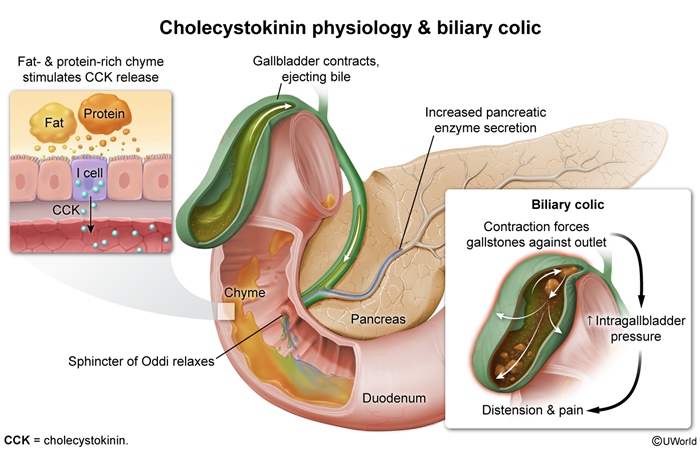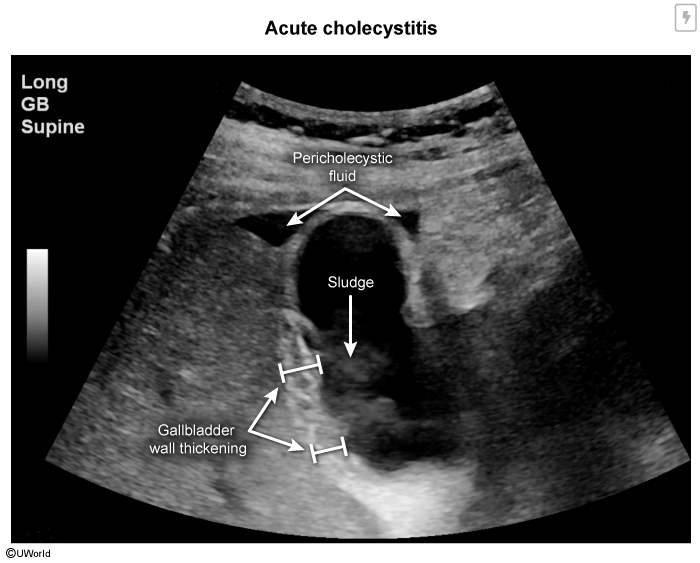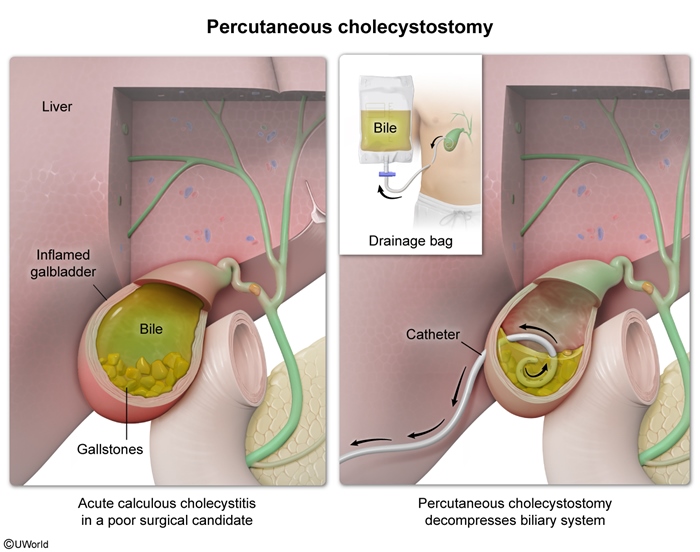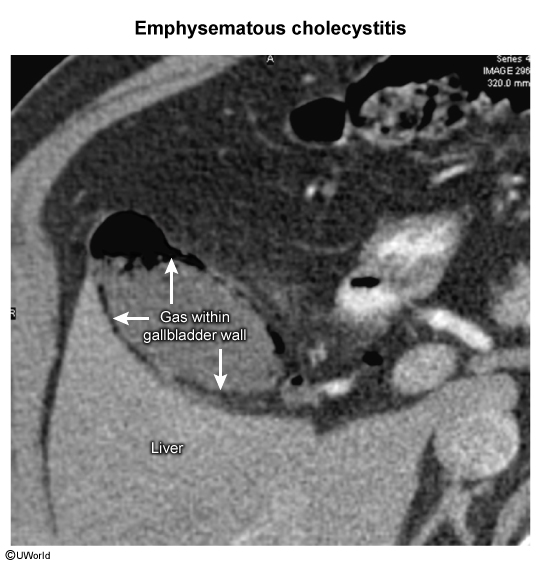Acute Cholecystitis
Article Sections
Introduction
Acute cholecystitis is inflammation of the gallbladder, most often caused by gallstone obstruction of the cystic duct (calculous cholecystitis), leading to bile stasis and inflammation, sometimes with secondary infection. A less common form, acalculous cholecystitis, occurs without stones and is typically seen in critically ill patients.
Pathophysiology
The most common cause of acute cholecystitis is obstruction by a gallstone within the cystic duct. This results in obstructed bile flow through the duct and gallbladder distension.
The normal physiologic response to the ingestion of foods containing fat is the release of cholecystokinin (CCK), which triggers gallbladder contraction. If the gallbladder contracts against a fixed obstruction (eg, due to a thick biliary sludge or gallstone), the rise in intragallbladder pressure can cause ischemia within the gallbladder wall (
Continue Learning with UWorld
Get the full Acute Cholecystitis article plus rich visuals, real-world cases, and in-depth insights from medical experts, all available through the UWorld Medical Library.
Unlock Full AccessFigures



